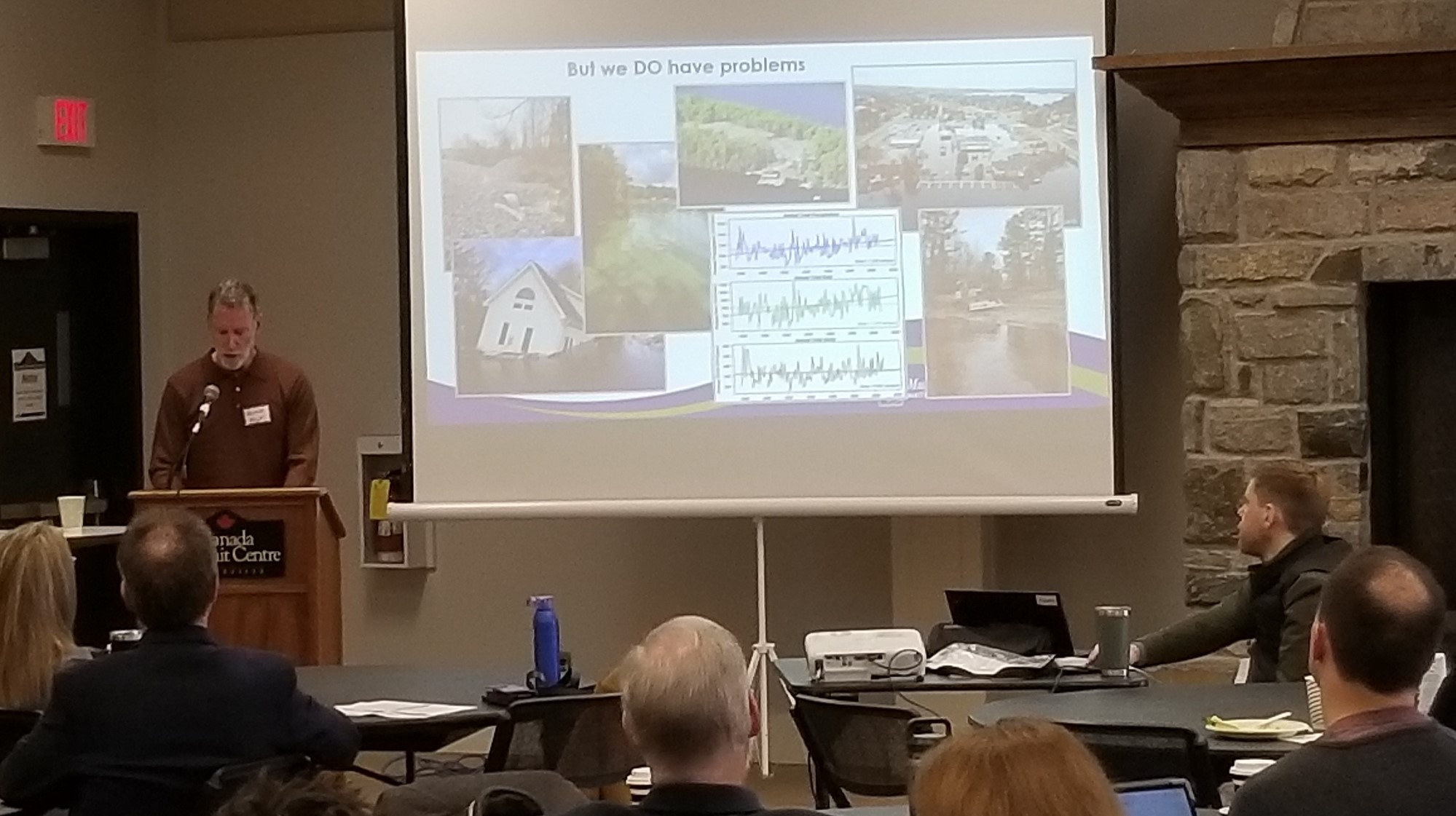Municipalities embark on a long and winding journey towards watershed management.
Collaborative approach needed to enable watershed-scale decisions that address local land-use issues.
By Kevin Trimble.

When The Beatles sang about a long and winding road, they could have been referring to the task we face in improving management of the Muskoka River Watershed.
The 2023 Muskoka Watershed Report Card revealed that our watershed will degrade substantially if our ways of caring for it are not improved. Such environmental degradation risks impacting our vibrant, but strongly environment-dependent economy, never mind the impacts on our ecosystem and quality of life.
The Muskoka River Watershed is a vast landscape more than 5,000 km2 in area, stretching from Algonquin Park to Georgian Bay. The Muskoka River drops more than 300 metres on its 210 kilometre journey through a series of connected lakes to two outlets in Georgian Bay.
But a watershed is also a local ecosystem; it’s not just about the water flowing through it.
In the Muskoka River Watershed, ecosystem processes extend across the boundaries of 13 lower tier and four upper tier municipalities, several First Nations and the overlapping jurisdictions of the province of Ontario and the federal government.
Addressing the disturbing environmental trends identified in the Report Card with so many governing bodies requires a new approach to how we share responsibility for the ecosystem we depend on. We need collaborative management to enable watershed-scale decisions that address local land use issues in ways that combine to benefit the whole watershed ecosystem. An important step forward happened this week.
Although there have been discussions over the last five or six years concerning the desirability of moving to integrated watershed management (IWM), the first tangible step on this road took place last February when MWC ran a one-day, invitation-only conference for municipal councillors and senior staff from across the watershed.
That conference generated enough interest that several municipalities offered to host a follow-up meeting.
On Thursday, November 28th, the Town of Huntsville and Township of Lake of Bays jointly hosted a workshop for senior municipal representatives with support from MWC and the District of Muskoka. About 60 people attended, representing two upper tier and 10 out of 13 local watershed municipalities, along with several First Nations.
The Regional Director of the Ministry of Natural Resources also attended, representing Minister Graydon Smith. Speakers addressed the need and willingness to work collaboratively along with some of the challenges and new tools that will be available to make watershed management feasible.
With mutual trust and respect, a collaborative decision-making structure can be built that includes our existing governments as well as various sectors of the community. This cannot be simply imposed from above because there is no single agency responsible for the entire watershed and the existing administrative bodies need to take ownership as joint builders of the collaborative structure.
Getting there involves a long and winding road, but it’s a journey worth taking.
Watershed management is about managing our activities on the landscape, rather than us attempting to manage the environment, or controlling water.
Experience from around North America suggests that collaborative watershed management can be very successful, but that bringing our communities together at the beginning to build this collaboration might be more difficult than the technical and scientific work we will have to do afterwards.
Still, there are many reasons to be optimistic that we can meet the challenges we face. We have a high-quality environment that supports a strong economy. Our municipalities already co-operate on many tasks and Thursday’s meeting confirmed that this good will is extending into watershed management.
Now, members of our watershed communities also need to embrace a big culture shift in how we think about our relationship to the watershed as we make our business decisions and take local actions.
We need to support our local politicians as they begin the tough job of embracing the challenges that integrated watershed management will entail. Thursday’s meeting was an encouraging step forward.

First Steps on the Path to IWM, a series from Muskoka Watershed Council, provides information about Muskoka’s precious but fragile environment. This week’s contributor is Kevin Trimble, a retired ecologist, Muskoka resident and director and a former chair of MWC. This article was first published on MuskokaRegion.com on 7 December 2024.
